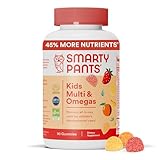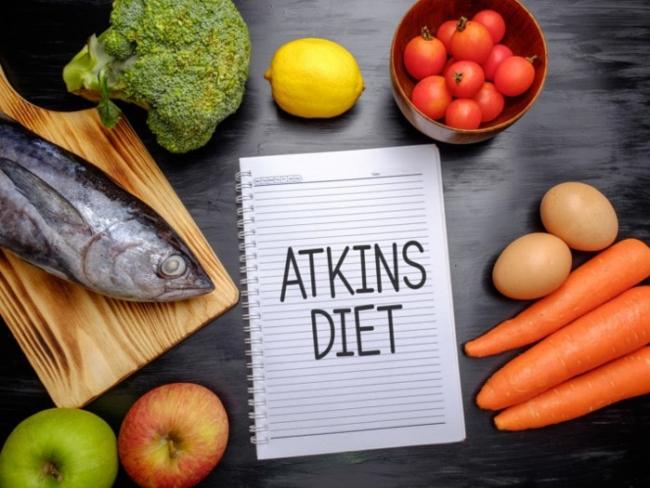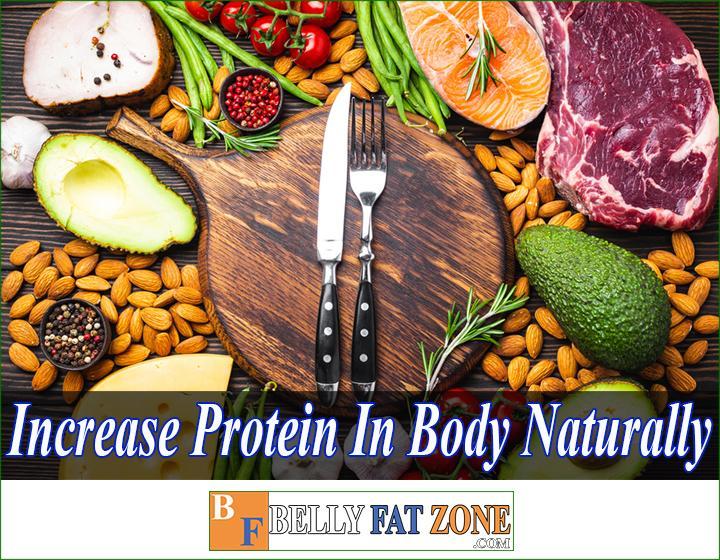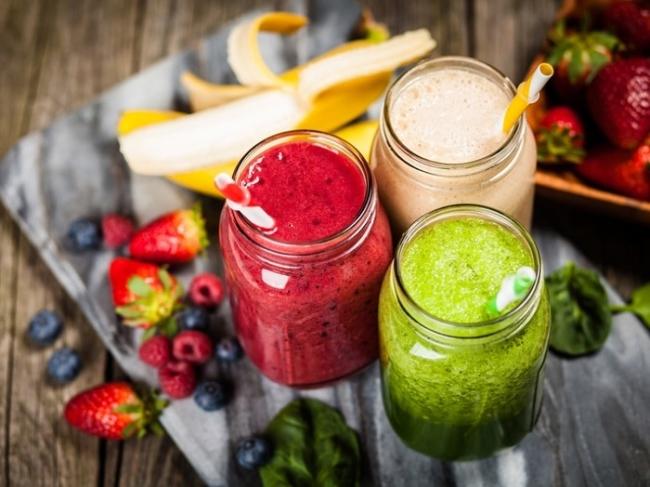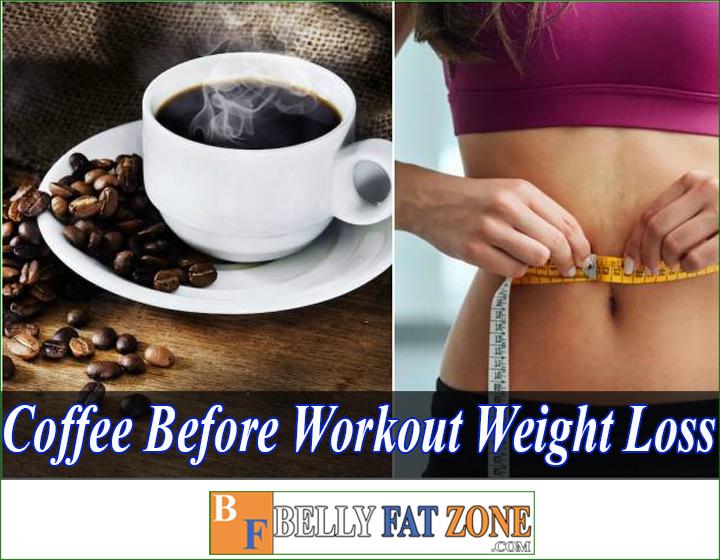Our bodies need various vitamins and minerals to meet all the needs of our imaging activities, from the cellular level to our daily activities.
Daily meals, though you have been paying close attention to the nutrition of your meals, you cannot have any way to synthesize all the essential vitamins that your body needs.
Those who regularly exercise with high intensity, the amount of vitamins and minerals the body consumes more, and vitamin supplements are always what we should do.
To know how vitamin supplements and how to use each type of vitamin is appropriate for our bodies, Bellyfatzone invites you to learn some more knowledge in this article.
If you are in the process of gaining muscle or losing fat, you will probably be very concerned about the calories, carbs, protein, and fat in your diet.
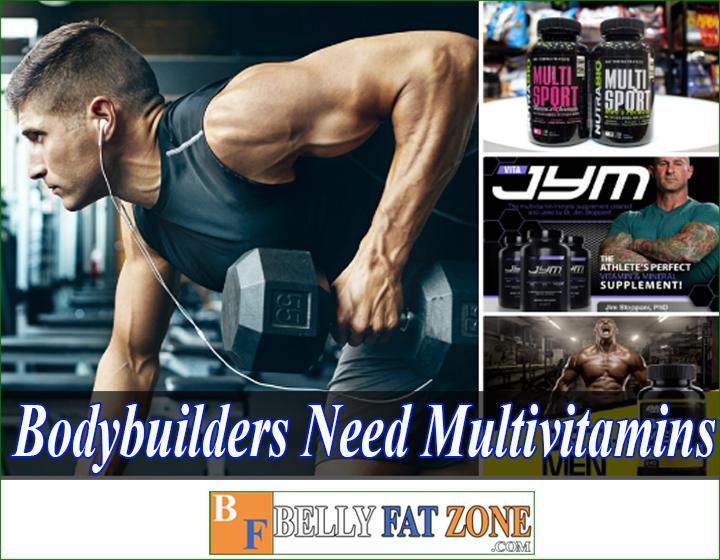
However, another important ingredient is micronutrients like vitamins. So
- Do bodybuilders need multivitamins?
- What is the effect of vitamins in the gym?
Importance of the effect of vitamins in the gym
Vitamins and minerals play a role in ensuring the body's normal functioning, maintaining and strengthening energy, fighting inflammation and disease.
For practitioners, this substance group is even more necessary. Here are 10 vitamins and the benefits that you should supplement to improve health and fitness efficiency.
View more: Top Best Multivitamin Bodybuilding For Men and Women
Benefits of water-soluble vitamins for bodybuilders
1. Vitamin B1 (Thiamine)
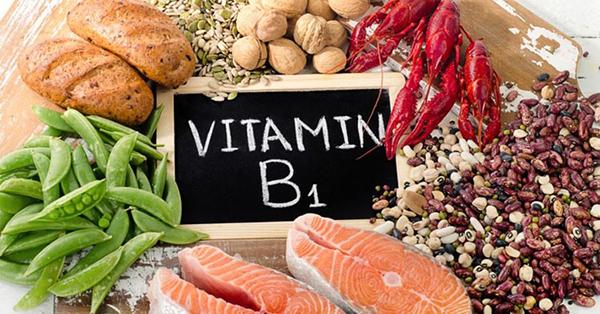
- The main purpose of vitamin B1 is to help the body use the carbohydrates you consume to create energy for exercise.
- Besides, it also helps you have a healthy nervous system, supporting nerve transport throughout the cells.
- Good sources of vitamin B1: Sunflower seeds (the most abundant, ¼ cup meets 50% of daily needs), yellow tuna, black beans, and lentils.
2. Vitamin B2 (Riboflavin)

- Riboflavin helps the body process 3 macronutrients, including protein, carbs, and fat. It also helps you to have smooth, healthy skin.
- Good sources of vitamin B2: Calf liver (meets 100% of daily needs), milk (1 cup of milk provides 30% of daily needs).
3. Vitamin B3 (Niacin)
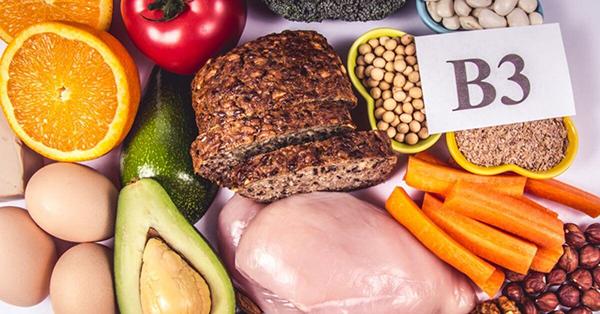
- Vitamin B3 plays a major role in the energy production and maintenance of the nervous system. Also, it ensures a healthy digestive system.
- Good sources of vitamin B3: Chicken breast (1 serving of 150g meets 72% of the daily requirement of vitamin B3), yellow tuna, and flounder
4. Vitamin C

- Everyone knows that vitamin C boosts the immune system, fighting off colds, is an antioxidant that prevents free radicals from causing disease. But you may not know it is also a good vitamin for muscles, reduce muscle soreness, and maintain connective tissue in cartilage and tendons.
- Good vitamin C sources: Strawberries, Brussels sprouts, broccoli, red bell peppers, papaya (2 cups provide 300% of the daily requirement).
5. Biotin
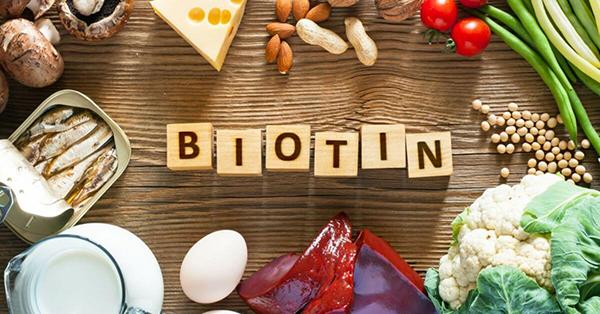
- Biotin is a nutrient that allows your body to maximize the use of other nutrients it receives while maintaining a blood supply. You need blood to transport oxygen around your body during exercise. Therefore, for those who regularly participate in physical activity, this substance is essential.
- Good sources of biotin: Unfortunately, biotin is not found in many foods, only a small amount in the liver, legumes, tomatoes, lettuce, and almonds. You can use a multivitamin supplemented with biotin.
6. Folic Acid
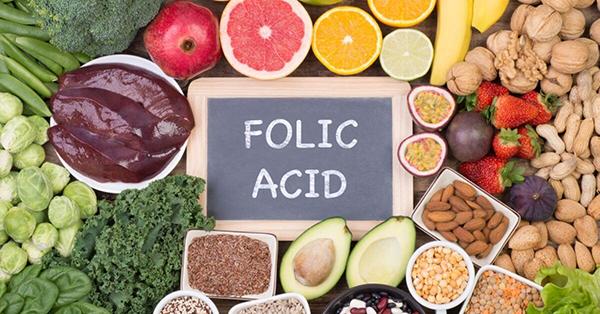
- This substance helps prevent neural tube congenital disabilities. Not only that, but it also helps regenerate new cells in the body and prevents anemia.
- Good sources of folic acid: Lentils (1 cup provides nearly 90% of the daily requirement), pinto beans, asparagus, spinach, black beans.
Benefits of fat-soluble vitamins for weight trainers
7. Vitamin A

- Vitamin A, also known as retinol, has the main function of ensuring healthy eyesight, maintaining a good immune system. It also plays an integral role in bone growth.
- Good sources of vitamin A: Carrots (1 cup of 600% of daily needs), spinach, sweet potatoes, turnips.
8. Vitamin D
- Vitamin D is often called the “sunshine vitamin” because our body can synthesize itself when exposed to sunlight. Its role is to assist in the absorption of calcium and phosphorus, ensuring your bones grow healthy.
- Good sources of vitamin D: Milk, salmon, shrimp, and eggs
9. Vitamin E

- Vitamin E is also a powerful antioxidant, building a healthy immune system. Besides, it also helps blood circulation, repairing tissues, indispensable at the recovery stage during exercise. It is also known by many as muscle-boosting vitamins.
- Good vitamin E sources: Sunflower seeds (1/4 cup meets 90% of daily needs), almonds, olive oil, spinach.
10. Vitamin K
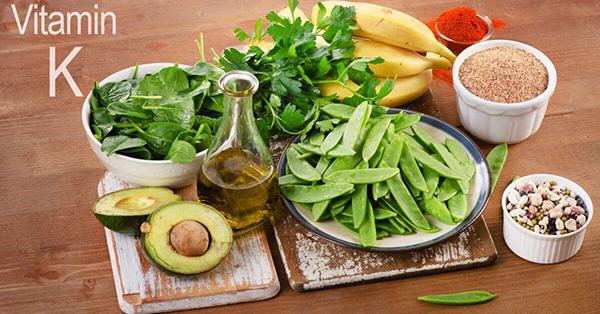
- The name of this vitamin comes from the German word – Koagulationsvitamin. It is an indispensable ingredient in blood clotting and bone development.
- Good vitamin K sources: Kale (which meets 1,000% of the daily requirement for each cup), spinach, Brussels sprouts, broccoli, lettuce.
Vitamin supplements like?
You can provide protein for your body with the natural foods mentioned above. However, it is not easy to get all of these vitamins in just the right amount by eating and drinking.
Practitioners will have higher vitamin needs than normal people, and not all of us prepare a good meal every day. Not to mention some types are significantly lost during the processing and storage of food.
Therefore, the use of vitamin pills is not new. But which pill meets all the above important nutrients? The answer is multivitamins.
What is a multivitamin, and why should you use it?
Most people only think of whey protein, creatine, and fat burning types when it comes to supplements. They have forgotten one of the indispensable, essential and essential things – multivitamins.
1. What is a multivitamin?
Synthetic vitamins are extracted from natural sources, providing essential vitamins and minerals for the body.
- Vitamins: This is an organic component, more complex than minerals, necessary for the body's survival, controlling chemical reactions to convert food into energy and living tissue.
- Minerals: Inorganic ingredients, with simpler chemical form, are more stable in food processing. Minerals are of two major types: macronutrients (calcium, phosphorus, potassium, sodium, chloride, magnesium, sulfur) and trace elements (iron, iodine, zinc, chromium, selenium, fluoride, molybdenum, copper, and manganese). Minerals are used to produce the necessary hormones.
2. Why do you need a multivitamin?
- A multi-vitamin pill for gym people will definitely be more comprehensive than adding each type.
- Athletes, bodybuilders, or people with active lifestyles will need comprehensive and quality vitamins.
- Besides, people lacking in nutrients, poor health, or pregnant women should also consider supplementing this protein and minerals source.
3. What is a synthetic vitamin for gym people?
Vitamins may not help you gain muscle or lift heavier weights after an instant. But it will give you a healthy body – a good foundation to do everything. It is like a solid foundation of a house.
According to nutrition and bodybuilding experts, if you are deficient in vitamins, other supplements you take won't be very effective.
So it should be the first thing you use. It helps you recover faster and improves exercise performance if used regularly and regularly.
4. Types of multivitamins
Vitamins for men and women have some minor differences to meet their unique needs.
Multivitamins for men often include palmetto to support prostate health or some ingredients to increase testosterone production.
While the formulas for women often focus on beautiful skin, hair, and nails. Some types with ingredients specifically for pregnant women.
Besides, some types are made suitable for children to use, helping to grow well and less sick.
When using, you need to pay attention to the correct dosage stated on the instructions, choose to buy products from big and reputable brands.
People who are ill, pregnant, or breastfeeding should consult a doctor before use.
Vitamin C for gym people
Whether you want to lose fat or build muscle, or both, you need vitamin C. How important is vitamin C for the gym?
Learn about the benefits as well as the best way to add this nutrient.
Vitamin C for gym people: Why is it needed?
Everyone knows that besides exercise, nutrition should also be paid close attention to.
However, most people only focus on protein if they need to gain muscle, green tea, CLA, and L-Carnitine if they need to lose fat but ignore a great key of health and physique – vitamin C.
What is vitamin C?
Vitamin C, also known as ascorbic acid or L-ascorbate, is an essential vitamin for the human body.
It's one of the healthiest and most important vitamins you can get every day and the first thing you think about when you catch a cold.
Vitamin C is water-soluble. Therefore, the extra content your body does not use will be excreted in the urine within 24 hours.
Vitamin C is necessary for the normal functioning and development of the body. It helps with tissue growth and repair, anti-oxidant, cell protection, immune system booster, and disease prevention.
View: Is Vitamin C Good for Gym?
Benefits of vitamin C for exercise

Everyone needs vitamin C. But if you're a gym, this nutrient is even more important. If you want to know why read on.
1. Against the onslaught of free radicals
When you perform weight training sessions, free radicals are created in the body. Free radicals are basically metabolic wastes.
They will attack the cells in your body, cause aging and many other dangerous diseases.
Vitamins are a powerful antioxidant, which prevents free radicals from forming and developing, while inhibiting their effects, helping to protect your health.
2. Gim produces cortisol
Stress from everyday life or exercise pressure triggers a catabolic hormone called cortisol.
Cortisol hurts fat loss and muscle building. It breaks down muscle tissue to create energy and stimulates fat storage, especially in the stomach area.
It also reduces muscle resilience after exercise, hindering the delivery of nutrients to muscle building.
Therefore, vitamin C inhibiting cortisol will be a great supportive solution for improving your physique.
3. Strengthen the immune system
Getting sick from work is definitely something that no gym wants. During that time, you will not be able to go to the gym, and the diet will be broken because you have to eat and drink to recover.
That's why you have to take vitamin C regularly every day to increase resistance, fight the onset of disease. And, of course, you don't have to wait until you're sick to take care of C.
4. Reduce muscle soreness
Research has shown that by supplementing with vitamin C near a training session (i.e., before or after training), the muscles will not become sore in the next few days, even if you exercise at high intensity.
Try to experience for yourself the difference. Just a small convenient C pill and your muscle recovery process will be significantly more effective.
5. Increase iron absorption
Vitamin C has been shown to increase iron absorption. Iron is used to bind oxygen to hemoglobin in the blood, especially if you want to perform a heavy weight training session with maximum productivity.
Besides, it is also essential for the overall health of each person.
6. Help create natural steroids
The final but not least of vitamin C's effect is to help create natural anabolic substances in the body.
The amount of muscle you can build is based on the number of natural steroid hormones you have. So the more steroids, the greater the likelihood of muscle growth.
Many people also find unsafe steroid supplements from outside, so why not produce them naturally and healthy?
If you ask the gym if you should take vitamin C, the answer is definitely yes. It brings a lot of effects, but please use it in a moderate dose.
Signs of a vitamin C deficiency
- Dry hair and split ends
- Gingivitis
- Bleeding gums
- Dry, rough, scaly skin
- The wound heals
- Skin easy to bruise
- Epistaxis
- Weak enamel
- Swollen and sore joints
- Infectious
- Anemia
- Slow metabolism, slow weight loss, or sometimes cause weight gain.
- Lack of vitamin C for a long time can lead to scurvy – spots appear on the skin, pale skin, tired body, joint pain.
Sources of vitamin C for gym people and bodybuilders

This vitamin is found in some natural foods like:
- Cantaloupe
- Oranges
- Broccoli
- Red Cabbage
- Green bell pepper
- Red bell peppers
- Kiwi
- Tomato
- Strawberry
- Raspberry
- Pineapple
- blueberry
- Papaya
- Mango
- Watermelon
- Cauliflower
- Brussels sprouts
Besides, if you feel that your meal is not really quality, you can supplement vitamin C through oral tablets and effervescent tablets.
How much vitamin C does a bodybuilder need?
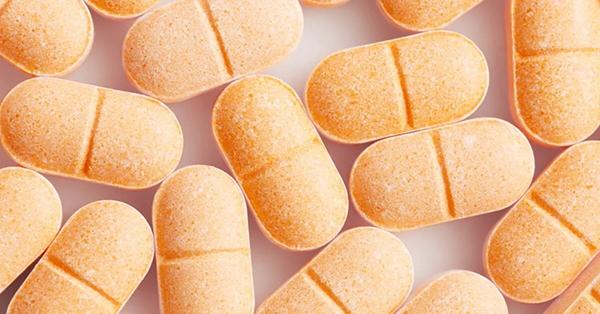
All nutrients work best only if taken in moderate doses. This is the amount of vitamin C recommended by the FDA for each age group and gender.
1. Babies and children
- 0 – 6 months: 40 mg / day
- 7 – 12 months: 50 mg / day
- 1 – 3 years: 15 mg / day
- 4 – 8 years: 25 mg / day
- 9 – 13 years: 45 mg / day
2. Teenagers
- Female 14-18 years: 65 mg / day
- Men 14-18 years: 75 mg / day
3. Adult
- Men 19 and older: 90 mg / day
- Females age 19 and older: 75 mg / day
This dose does not apply to athletes and trainers because they need more vitamin C than inactive people.
For exercise, depending on the exercise level, you should load at least 200-1,000 mg per day, but not exceeding 2,000-3,000 mg. If you are sick, you may need up to 8g daily during the illness.
Excess vitamin C for gym people harmful?
In fact, you don't need to worry about excess vitamin C; since it is a water-soluble substance, the excess will be released through urine or sweat.
However, do not take too many C supplements because it is not necessary and costly in vain. Also, note:
- Don't take too much C at once, but break down into 2-3 doses in one day. You should not consume more than 1,000 mg at a time. For example, if you set a goal of taking 1,500 mg per day, divide it into 3 doses of 500 mg: 1 dose in the morning, 1 dose before training, and 1 dose after training.
- Taking large doses of vitamin C at the same time can cause diarrhea, nausea, and sleep disorders.
Should gym drink effervescent C?
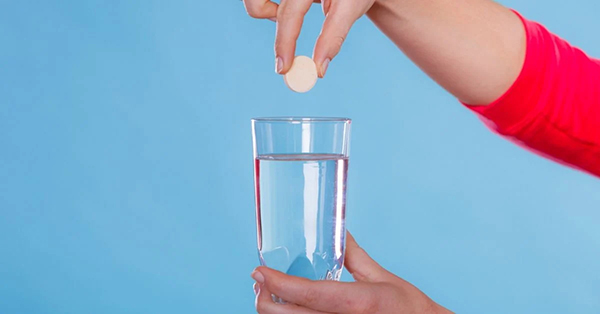
In terms of nutritional value, effervescent C is better than filtered water, soft drinks, or other high sugar energy drinks, so you can use it before or after exercising.
However, pay attention to the vitamin content in C tablets. Please choose the ones with high vitamin C content to ensure effectiveness.
In addition to C effervescent, the practitioner can also drink many other types of water.
Besides, you should add vitamin supplements to the gym. These are products that provide micronutrients to the body and muscles.
So we have to understand how important vitamin C for gym people is. Do not forget to get enough of your body through food or day or supplement pills with reasonable doses to support your exercise.
Vitamin D
Vitamins are important components in supporting our overall health, and of course, it aids in exercise.
There are many types of vitamins our body needs; in this article, let's talk about a fairly important vitamin that aids in absorbing calcium for the body. That is Vitamin D.
What is vitamin D?
Vitamin D is a nutrient that the body has the ability to synthesize from the sun and can be replenished from the outside through the diet.
Vitamin D is actually a pro-hormone, having many important effects: maintaining healthy bones and teeth, preventing diabetes, and some types of cancer.
Let's find out what vitamin D does to health and the gym, sports offline!
Vitamin D is completely different from most other vitamins.
Indeed, this is a type of steroid hormone produced from cholesterol when your skin is exposed to sunlight. For this reason, vitamin D is often referred to as the “sunshine vitamin.”
However, sun exposure rarely provides the right amount of vitamin D, which is why you need to get extra from nutritional products or diets.
The problem is that only a handful of foods contain large amounts of this essential vitamin, and often all are deficient.
What are vitamin D and its effects on the body?
It has been a long time since vitamin D has been taught to children about bone health and children's development. But besides, the use of vitamin D is more than that.
What is vitamin D?
Vitamin D is a fat-soluble vitamin, oil and can be stored in the body for a long time. Two main types you need to know:
- Vitamin D2 (ergocalciferol): Found in some plants, fungi, and yeast.
- Vitamin D3 (cholecalciferol): Found in some animal foods, such as fatty fish and egg whites.
In particular, D3 is twice as effective at increasing the blood content of vitamin D as D2.
You may not know, vitamin D is not actually a vitamin. Different from the name, it is actually a type of pro-hormone.
Vitamins cannot be produced by the body but must be replenished through the nutrition pathway.
Vitamin D, meanwhile, can be synthesized by the body when the skin is exposed to sunlight.
It is estimated that leaving your skin exposed to the sun for 5-10 minutes, 2-3 times per week, helps your body produce the necessary vitamin D amount.
But these vitamins break down pretty quickly, so they can be depleted, especially in the winter. Recent studies show that a significant proportion of the global population is deficient in vitamin D.
How does vitamin D work in the body?
Vitamin D needs to go through 2 metabolic steps to become useful for health.
- First, it is converted to calcidiol, or 25 (OH) D, in the liver. This is the stored form of this vitamin.
- Secondly, it is converted to calcitriol, or 1.25 (OH) 2D, almost in the kidney. This is the steroid form of vitamin D.
Calcitriol reacts with the vitamin D receptor (VDR), present in almost every cell in the body. When an active form of vitamin D binds to this receptor, it converts the gene to an active or paused mechanism, leading to changes in your cells.
This is similar to most other steroid hormones that work.
Vitamin D affects various cells related to bone health. For example, it stimulates the absorption of calcium and phosphorus from the intestinal tract.
However, scientists have recently discovered it plays an important role in other aspects of health, such as the immune system's function and the fight against cancer cells.
Sunlight is an effective way to absorb vitamin D
Vitamin D can be produced from cholesterol in the skin when exposed to UVB from the sun.
If you live in an area with lots of sunshine, you can absorb all the vitamin D your body needs by sunbathing a few times a week.
Remember that you need to expose a large part of your body to direct sunlight. If you only expose your hands and face to the sun, you will not produce enough vitamin D.
Besides, if you wear sunglasses or sunscreen all day, you will produce petite vitamin D, even not produce at all.
However, you need to make sure to use sunscreen when exposed to the sun for extended periods.
Sunlight is good for your health, but sunburns can cause premature skin aging and may increase your risk of skin cancer.
If you have to be out in the sun for a long time, pay attention to going out without sunscreen should only last for the first 10-30 minutes, depending on the sensitivity of the skin to the sun.
Then, apply it to the skin before it starts to burn.
Because vitamin D is stored in the body for weeks or months at a time, you may need to be exposed to sunlight only a few times a week at times to maintain its content.
This means that, if you live in an area where there is not enough sunlight, absorbing vitamin D through natural foods or supplements is extremely important, especially during rainy or winter weather.
What is the effect of vitamin D?

The benefits of vitamin D are important for human health, at any age, not just children or the elderly. Here are the reasons why you should regularly take this type of nutrient.
1. Helps strengthen bones
Vitamin D plays an integral role in regulating calcium levels and maintaining blood phosphorus levels – two critical factors to keep bones healthy.
TVitaminDD's effects of absorbing calcium in the intestine; otherwise, calcium will be excreted by the kidneys and disappear.
Vitamin D deficiency in children is the cause of rickets. Babies with this disease may be due to inadequate eating, not being breastfed regularly, or because the mother during pregnancy has a vitamin D deficiency that causes the baby to develop rickets in the fetus.
Manifestations of vitamin D deficiency in adults are osteoporosis or soft bones. They reduce bone density, muscle weakness, common in postmenopausal women and older adults.
2. Reduce the risk of getting the flu
Children who receive 1,200 international units (IU) of vitamin D daily for 4 months in the winter reduce their influenza A infection risk by more than 40%.
The study was also conducted on 198 adults, and as a result, people with vitamin D blood levels equal to or higher than 38ng / ml were less likely to get the flu than people with low vitamin D levels.
3. Reduce the risk of diabetes
One study has shown an inverse relationship between blood vitamin D levels and types 2 diabetes risk. In people with type 2 diabetes, vitamin D deficiency can negatively affect insulin secretion. And glucose tolerance.
In another study, it was found that infants who received 2,000 IU of vitamin D daily had an 88% lower risk of type 1 diabetes at age 32. Therefore, there is reliable evidence to link argue that one of vitamin D's effects is to prevent diabetes.
4. Ensuring the health of newborns
Children with normal blood pressure who were given 2,000 IU per day had significantly lower arterial wall stiffness after 16 weeks than children who were only receiving 400 IU per day.
Low vitamin D status is also associated with childhood allergies and increases the severity of the disease.
These can include asthma, atopic dermatitis, eczema, and Vitamin D, which can enhance the anti-inflammatory effects of glucocorticoids, supporting people with steroid-resistant asthma.
5. Ensuring the health of pregnant women
Pregnant women deficient in vitamin D are at a higher risk for pre-eclampsia and need a cesarean section. Low vitamin D levels are also associated with gestational diabetes and bacterial vaginosis in pregnant women.
However, it should be noted that high vitamin D levels during pregnancy are also associated with an increased risk of food allergies in the first 2 years of life. Therefore, take the right amount, the right dose.
6. Preventing cancer
The last thing vitamin D promotes is the prevention of certain types of cancer. It is important in regulating cell growth and intercellular communication.
Several studies show that calcitriol (the form of hormone-active vitamin D) can reduce cancer progression by slowing new blood vessels' growth in cancerous tissue, destroying cancer cells: mail, cell proliferation, and metastasis.
Vitamin D affects more than 200 human genes. And of course, these genes will be weakened if we do not have enough vitamin D needed.
7. Prevention of many other dangerous diseases
Vitamin D deficiency is also associated with an increased risk of cardiovascular disease, hypertension, multiple sclerosis, autism, Alzheimer's disease, rheumatoid arthritis, increased asthma levels, and swine flu.
This is because vitamin D has a positive effect on the immune system. However, this issue still needs more research before concluding.
Causes of vitamin D deficiency
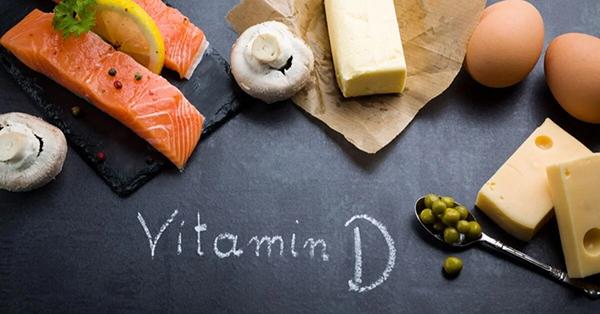
Although the body can make vitamin D, deficiency can still occur for a variety of reasons:
- Dark skin tone or the use of sunscreen reduces the UVB absorption needed to produce vitamin D.
- Sunscreens with SPF 30 can reduce the body's ability to synthesize vitamins by 95%. To start producing vitamin D, the skin must be exposed to sunlight, not covered by clothing.
- People living in northern latitudes or heavily polluted areas, who work at night or stay most of the time indoors need to get this vitamin from outside foods.
Symptoms of vitamin D deficiency
Vitamin D deficiency is one of the most common nutritional deficiencies. Some people are at greater risk than others.
Besides, older adults also experience this problem more.
People with certain medical conditions are also more likely to suffer from vitamin D deficiency. A study has shown that 96% of people who have had a heart attack have deficient vitamin D levels.
Symptoms of vitamin D deficiency may include:
- Frequent illness or flu
- Pain in the bones and back
- Depressed mood
- The wound heals
- Alopecia
- Muscle aches
Continued deficiency of vitamin D can lead to:
- Fat
- Diabetes
- Hypertension
- Depression
- Neurodegenerative diseases, such as Alzheimer's
Vitamin D deficiency can also contribute to developing some cancers, especially breast, prostate, and colon cancer.
The most common sources of vitamin D
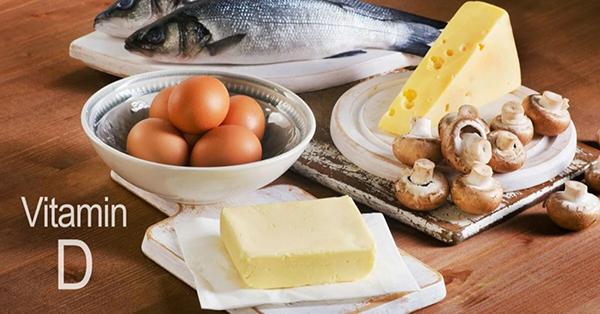
These are foods that are thought to be the richest sources of vitamin D. The amount of vitamin D can be calculated in 2 ways: micrograms (mcg) or international units (IU).
| Food | Amount of vitamin D | % RDI |
| Cod liver oil (15ml) | 1,360 IU / 34 mcg | 227% |
| Cooked Salmon (85g) | 447 IU / 11 mcg | 75% |
| Canned Tuna (85g) | 154 IU / 4 mcg | 26% |
| Cooked beef liver (85g) | 42 IU / 1 mcg | 7% |
| 1 large egg | 41 IU / 1 mcg | 7% |
| Canned Sardines | 23 IU / 0.6 mcg | 4% |
* RDI (Reference Daily Intake): Reference daily rations
You can add other vitamin D-rich foods to the menu, such as swordfish, salmon, milk, yogurt, Swiss cheese, cereal fortified with vitamin D …
Besides, vitamin D can be synthesized through sunlight. If you want to supplement with vitamin D by sunbathing, especially for children, sunbathe between 6-9 am or after 17:00, wear a hat and sunglasses to avoid direct sunlight or eyes. Time should not exceed 30 minutes per day.
Although fatty fish like salmon, swordfish, tuna, and sardines are good sources of nutrients, you need to eat them almost every day to absorb the right amount.
The only perfect vitamin D source is cod liver oil, such as cod liver oil, which contains up to 2 times the body's daily requirement in just 1 tablespoon of 15 ml.
Use vitamin D supplements.
If you do not get enough of this vitamin through sunlight or regular food, consider taking supplements. If used properly, in the right doses, these are safe and bring many health benefits.
You can also use multivitamins or multivitamins to make the most vitamins and minerals your body needs.
The recommended amount of vitamin D per day
How much should vitamin D be taken daily? The amount you need depends on your age. The recommended amount of vitamin D by the American Institute of Medicine (IOM) is as follows:
- Infants 0-12 months: 400 IU (10 mcg)
- Children 1-18 years: 600 IU (15 mcg)
- Adults under 70: 600 IU (15 mcg)
- Adults over 70 years: 800 IU (20 mcg)
- Pregnant or breast-feeding women: 600 IU (15 mcg)
Although the level is just as measured as 20ng / ml, many health experts believe that people should focus on blood levels higher than 30ng / ml to optimize health and prevent disease.
Besides, many people believe that the recommended intake is too low and that people need more to reach optimal blood levels.
Side effects of vitamin D

The maximum limit of vitamin D consumption is 4,000 IU per day. However, the National Institutes of Health states that vitamin D is only harmful when consumed above 10,000 IU per day.
Excessive vitamin D consumption (also known as hypervitaminosis D) can lead to calcification and hardening of the blood vessels, kidneys, lungs, and heart.
The most common symptoms of excess vitamin D are headaches and nausea, and people also experience loss of appetite, dry mouth, vomiting, constipation, or diarrhea.
So, if you take supplements, take only the necessary amount.
Optimize other nutrients
You need to remember clearly that nutrients often do not work independently. Many depend on one another, and the increased intake of one nutrient may increase the need for other nutrients that need to be supplemented.
Several researchers agree that fat-soluble vitamins can work together, and it is important to optimize the absorption of vitamins A and K while taking vitamin D3.
So, you understand what vitamin D is and what the effects of vitamin D are. Do not forget to prepare yourself and your family with meals full of vitamins and minerals to ensure the body's health and normal development.
Workout Supplement and Vitamins
View more:
- What Happens to Excess Protein in The Body?
- Caffeine Effects on The Body – Know to use Wisely
- Soluble Fiber Foods You Should Be In The Kitchen For The Great Benefits
Hopefully, the information above has helped you gain some more knowledge about “do bodybuilders need multivitamins” and bring some small value. Please share this article if you feel it is useful. Thanks!
If you have useful additional information to help people, please comment below.
Best Selling Multivitamins:
Wish you find your favorite product!
References
